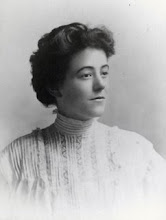 White winged crossbill
White winged crossbillIllustration by Louis Agassiz Fuertes
Despite endless turmoil and uncertainty in the homosapien world, the birds appear unaffected. Two days ago I spied my first robin hopping about, plotting a settlement for the coming three-nester. This morning Mr. Mourning Dove was pursuing Mrs. (or Miss – can never be quite sure) Dove, puffing himself up and trying to jump her, to put an accurate spin on the scene. Crude, but nature never appropriated Victorian sensibilities.
The juncos are faithful, as are the downy woodpeckers, an occasional red-headed woodpecker, the titmice, which I love – cousin to the chickadee - how could they not be adorable – red-breasted and white-breasted nuthatches, the cardinal and blue jays, and ever-watchful crows, awaiting leftover popcorn. I made my own birdseed mix this winter, because I had lots of stale peanuts I’d bought in bulk on sale really cheap last year to make something or other and never got around to it. The can is empty, though. ‘Must restock.
It’s cold now here in Michigan. We have had little snow, though, in two months, and the tulips and narcissus are peeking through the ground. I went out the other day and cut through the landscape cloth I put down last fall, because I forgot to move a patch of daffodils. The ultimate effect will be more natural, which is what I always strive for, anyway.
The Michigan statewide bird report for yesterday mentions lots of owls again, a Bullock’s Oriole in Livingston County, which is in the southeastern quadrant of the lower peninsula, and a white-winged crossbill in Kent County, which is where Grand Rapids is located, home of Gerald Ford and where closed on Sunday has been a tradition ever since I can remember. Get the picture?
The Bullock ’s oriole is a western species and in any event is a summer bird in these parts, rarity though he may be at all times. What in the world is he doing at a feeder in Michigan in early March? Crazy weather patterns would be my guess.
The crossbill dips down from his winter range when food is scarce or the supply is running out or in extremely cold winters, which this has not been. According to the report he is chowing on the seeds in a mixed spruce and pine stand. Usually they travel in flocks, so next week we may hear of more.

No comments:
Post a Comment